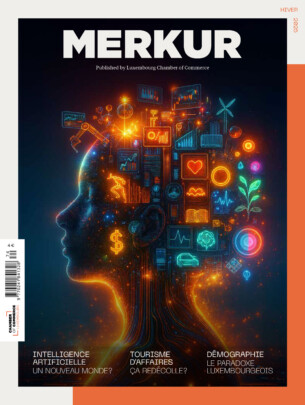The latest IDEA’s book brings together insights of several experts, offering their perspectives and analysis about the ongoing and future transformations of the Luxembourgish education landscape.
The purpose of this new book titled The (Major) Challenges of the Education System in Luxembourg is to answer some fundamental questions on the challenges of the education system in Luxembourg: what are the goals of the education system in Luxembourg, and how can its performance be measured? Are there performance indicators that would allow us to make credible international comparisons, considering our very specific context? What are the challenges related to linguistic and cultural diversity? What solutions can be considered? What insights do the evaluations conducted in Luxembourg provide on these issues?
Education for All ?
The first text of the book, written by Dr. Thomas Lenz, researcher manager, and Dr. Susanne Backes, researcher scientist, both from the Luxembourg Centre for Educational Testing (LUCET), explores the structure of the education system in Luxembourg, highlighting its model that combines early tracking, a trilingual curriculum, and integrated vocational pathways. While recent reforms have strengthened vocational education, the transitions between different educational tracks are still quite limited, and significant inequalities persist—especially between native and immigrant students, and across socio-economic groups, largely due to language barriers. The article situates these challenges within a changing demographic landscape: Luxembourg is characterized by super-diversity, with over 170 nationalities represented in 2023, a growing share of multilingual households, and only half of the population having the Luxembourgish nationality. Meanwhile, the number of students from disadvantaged backgrounds has risen, particularly in national programs, while international tracks (Cambridge, International and European schools) continue to expand. These structural and demographic changes intersect with strong inequalities: Luxembourgish and German-speaking students are often overrepresented in academic tracks, while Portuguese-speaking and immigrant students are more frequently channeled towards vocational education. Factors such as socio-economic status, language, and gender strongly influence educational placement and long-term opportunities. Teachers play a significant role in supporting students within this complex, multilingual setting, yet the teaching workforce predominantly Luxembourgish. Recent reforms that encourage early language learning and expanding international programs present both opportunities and challenges – they may inspire innovation but also create greater inequalities among students. The authors conclude by calling for data-driven policies to monitor reforms and reduce educational inequalities.
Insights and Future Directions from the Luxembourg School Monitoring Programme
The analysis written by Dr. Sonja Ugen, Head of LUCET’s research portfolio, and Dr. Joanne Colling, researcher for the LUCET, shows how the multilingual context of education in Luxembourg affects learning outcomes and inequalities. Luxembourg has three official languages: Luxembourgish in preschool, German as the main language of instruction in primary school, and French introduced from an early age. The student population is highly diverse: 68% of primary and 66% of secondary students speak a language other than Luxembourgish at home. International tests such as PISA have consistently shown that students from Luxembourg score below the average results in reading, mathematics, and science since 2003, with strong disparities linked to socio-economic status, migration background, and home language. National assessments (such as the épreuves standardisées or ÉpStan), reveal that achievement gaps start to appear early, especially among Portuguese-speaking and non-German-speaking students. Recent policy initiatives aim to address these inequalities. European Public Schools (EPS) offer the European pathway with flexible language options (German, French, English). The ALPHA-zesumme wuessen pilot program allows families to choose French instead of German for early literacy instruction. Early findings indicate that EPS students are performing better than their peers in the national curriculum in mathematics, regardless of their language background, while ALPHA students demonstrate stronger French oral comprehension, higher motivation, and parents report feeling more capable of helping their children. However, there are still some methodological limits. EPS students often come from more advantaged backgrounds, the sample sizes remain small, and test comparability between languages is limited. In conclusion, offering more school choices can help address some inequalities, especially for vulnerable groups. Nevertheless, these results must be interpreted with caution given the early stage of implementation and methodological biases.
Does Luxembourg have a high-performing education system? And how would we know?
The third and the last text of this book, delivered by Mr. Edmund Misson, Head of Division, Innovation and Measuring Progress, OECD, explains that Luxembourg invests heavily in education but shows low PISA performance and large socio-economic achievement gaps. His paper also highlights the need for clearly defined educational goals, strategies and to clarify what is truly expected from the education system: to prepare individuals who are not only competent but also fulfilled and engaged.







